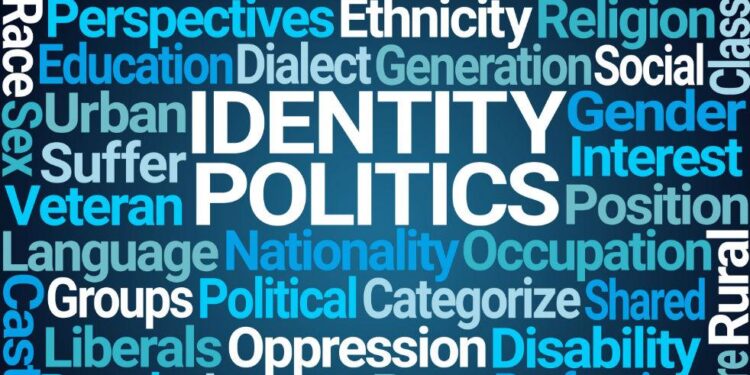The Evolution of Identity Politics: A Contemporary Examination
In an era marked by dynamic social movements and evolving cultural narratives, identity politics has emerged as a significant element in modern discussions. This concept revolves around how personal identities—encompassing race, gender, sexuality, and ethnicity—interact with political agendas and social activism. Identity politics serves as both a framework for analyzing societal interactions and a platform for voices that have been historically marginalized. From the civil rights struggles of the 1960s to today’s conversations about intersectionality, this phenomenon has energized advocates while also igniting heated debates. This article explores the definition, real-world implications, and critical insights related to identity politics by examining its roots and ongoing influence on contemporary political landscapes.
Defining Identity Politics: Theoretical Foundations and Context
Identity politics arises from the advocacy for individuals’ rights based on their distinct social identities such as race, gender identity, sexual orientation, and ethnicity. At its essence, this movement aims to elevate the voices of groups that have been historically sidelined in mainstream political discourse. It underscores how these identities shape individual experiences and perspectives while driving collective efforts toward social justice initiatives. However, critics caution that identity politics can sometimes foster division or polarization by emphasizing group identities over universal human experiences.
The theoretical underpinnings of identity politics can be traced back to various movements advocating for inclusivity and representation—including feminist movements, civil rights campaigns, and LGBTQ+ advocacy efforts. Each movement provides unique insights into how identity is perceived within society while challenging systemic inequalities. For example, Kimberlé Crenshaw’s concept of intersectionality illustrates how overlapping identities can lead to specific forms of discrimination or privilege—a crucial aspect in understanding contemporary discussions surrounding identity politics.
Identity Politics in Action: Examples & Case Studies
Identity politics has manifested itself through various impactful movements worldwide that have shaped policies and public dialogues significantly. A prominent illustration is the Black Lives Matter movement which emerged as a response to systemic racism alongside police brutality against African Americans. This grassroots initiative not only brought racial injustices into sharp focus but also sparked broader conversations about inequality across different sectors leading to substantial political mobilization efforts nationwide. Protests erupted across cities in America—and beyond—transforming into demands for legislative changes aimed at reallocating resources from police departments towards community services; showcasing how collective action rooted in shared experiences can drive meaningful change.
A further compelling instance is found within the realm of LGBTQ+ rights advocacy, which seeks equality based on sexual orientation or gender identification amidst widespread discrimination challenges faced by these communities globally. The landmark legalization of same-sex marriage following the 2015 Obergefell v Hodges ruling exemplifies decades-long activism focused on highlighting LGBTQ+ individuals’ unique experiences within society’s fabric; marking significant progress towards equality under law while simultaneously influencing cultural norms surrounding gender recognition today.
Constructive Engagement with Identity Politics: Strategies for Dialogue
Navigating discussions around identity politics requires sensitivity along with an openness to diverse viewpoints among participants involved in dialogue processes aimed at fostering inclusivity:
- Cultivate Diverse Perspectives: Encourage conversations that respect varying viewpoints within different identity groups.
- Identify Shared Objectives: Focus on common goals among diverse identities promoting collaboration rather than conflict.
- Pursue Empathy: Approach dialogues with intentions centered around understanding rather than debating opposing views.
- Select Inclusive Language: Utilize terminology respectful towards individuals’ unique backgrounds when engaging others during discussions.
Additionally structured frameworks may enhance public discourse regarding issues tied closely with aspects related directly back toward themes associated closely linked together through intersections between multiple facets comprising one’s overall sense belongingness; consider implementing frameworks such as:
| Name of Framework | Description/Purpose |
|---|---|
| The Intersectionality Framework | This framework analyzes overlapping social categories shaping lived realities experienced daily amongst individuals navigating complex environments influenced heavily by those intersections present throughout their lives . |
| < strong >Critical Race Theory< / strong > | This theory examines relationships existing between race , legal systems , power dynamics impacting marginalized communities .< / td > < / tr > |
| < strong >Empowerment Models< / strong > | These models emphasize increasing autonomy & agency held collectively amongst marginalized populations seeking greater representation .< / td > < / tr > |
Conclusion: Reflections on Identity Politics’ Role Today and Tomorrow in Society at Large and Beyond the Present Moment
The ongoing evolution surrounding concepts tied closely together under umbrella terms like “identity” continues shaping global socio-political landscapes profoundly affecting future trajectories concerning governance policies impacting communities everywhere! By prioritizing distinct needs expressed through varied lenses representing numerous backgrounds we challenge traditional power structures aiming instead toward amplifying unheard voices striving tirelessly advocate change necessary achieve equity across all levels society moving forward! As new generations rise up demanding accountability from leaders tasked ensuring fairness prevails amidst diversity present world today—the implications stemming forth out these dialogues will undoubtedly play pivotal roles determining outcomes shaping futures yet unfold before us all!










